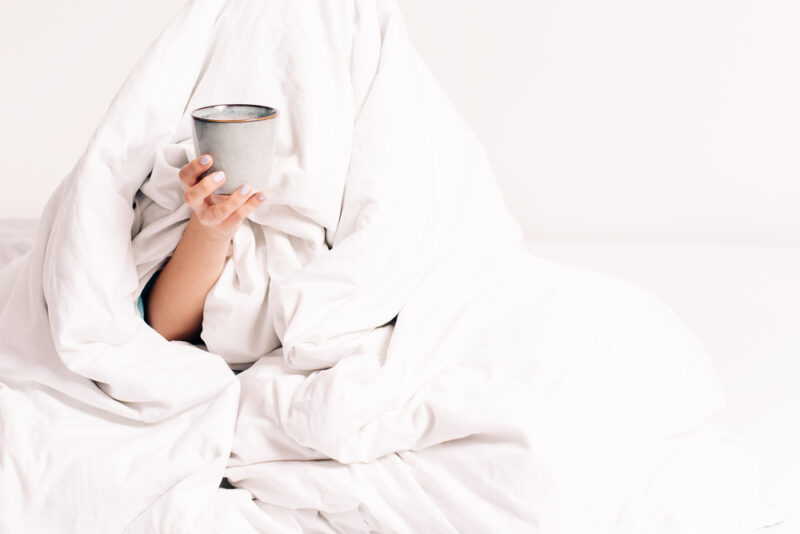Remember that it causes toxicity
Let’s discuss how alcohol affects our biology and why that hangover feeling happens. When drinking small amounts of alcohol, like one or two drinks, your body breaks down the ethanol in the drink into acetaldehyde and acetate. These chemicals are toxic to the body and can have an immediate impact on your thinking and physical movement, among other things.
Your liver typically removes the ethanol and its byproducts from your body, but when the amount of ethanol reaches a certain level it can no longer process it efficiently. This is why, when you drink large amounts, your blood-alcohol level increases. The toxins in the blood overload your liver and build up in your body.
As this happens, your blood pressure and heart rate go up, as does your breathing rate.
Your body starts to produce inflammatories because of the stress on the liver, which is why you may feel “sick” or have headaches the morning after a night of drinking. This inflammation can lead to dehydration, which is why many people also experience dry mouth and fatigue after drinking.

Psychological and biological effects
Not only do you feel physical effects from alcohol consumption, it also has an effect on your thinking and physical movement. Ethanol enters the bloodstream and binds to receptors in your brain that release dopamine and other chemicals that control alertness, coordination, and logical thinking. When too much binding occurs, you start to feel the impaired thinking and physical movements that come along with drinking too much.
“Not only do you feel physical effects from alcohol consumption, it also has an effect on your thinking and physical movement.”
The effects of alcohol on our biology are far-reaching and can be quite unpleasant. While it’s perfectly okay to enjoy a few drinks with friends or family, it’s important to keep it in moderation and understand the effects it can have. So the next time you feel a hangover coming on, remember why it’s happening – it’s just your body’s way of telling you it needs a break. If you’re hungover, find a way to heal yourself. It is beneficial for you to have a rest and sleep a lot. Drinking plenty of water and eating something nutritious can also help. Make sure you’re getting enough sleep, too. Getting a regular amount of sleep can help ward off or lessen the effects of a hangover.
If you’re feeling especially rough after drinking, consider speaking to your doctor or healthcare provider. They can provide medical advice tailored to your individual health needs. Remember that drinking alcohol damages all organs, especially the brain!





